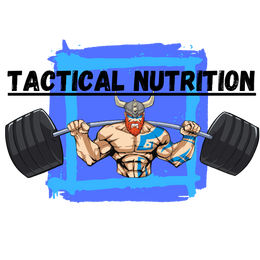Introduction
Stress is unavoidable for athletes and first responders. Whether it’s physical stress from hard training or psychological stress from high-stakes work, the body constantly fights to maintain balance. Over time, this stress adds up — raising cortisol, disrupting sleep, slowing recovery, and reducing performance.
That’s where ashwagandha comes in. Used for centuries in Ayurvedic medicine, ashwagandha is a natural adaptogen — a substance that helps the body adapt to stress. Today, science backs what ancient practitioners knew all along: ashwagandha can lower stress hormones, improve recovery, and enhance both mental and physical resilience.
What Is Ashwagandha?
Ashwagandha (Withania somnifera) is a medicinal herb known for its ability to balance stress hormones, boost energy, and support recovery. Its active compounds, known as withanolides, have been shown to lower cortisol levels — the body’s primary stress hormone.
For tactical athletes and first responders, this means less burnout, better sleep, improved focus, and faster recovery from training or demanding shifts.
How Stress Affects Performance
When the body experiences chronic stress, it releases excessive cortisol. While cortisol is essential for alertness in emergencies, too much for too long causes problems:
-
Slower muscle recovery and reduced strength gains
-
Impaired sleep and fatigue
-
Increased body fat, especially around the midsection
-
Lower testosterone and reduced motivation
For firefighters, police officers, and EMTs, these effects can accumulate quickly, impacting readiness and overall health.
Proven Benefits of Ashwagandha
1. Reduces Stress and Cortisol
Clinical studies show that daily ashwagandha supplementation can reduce cortisol levels by up to 30%, helping regulate the body’s stress response and improve mood.
2. Improves Recovery and Performance
Ashwagandha supports faster recovery by reducing muscle damage and inflammation after training. In athletes, it has been shown to improve strength, endurance, and aerobic capacity.
3. Supports Better Sleep and Energy
Ashwagandha promotes deeper, more restorative sleep — essential for first responders working long or overnight shifts. Many users also report improved energy during the day without the crash of caffeine.
4. Enhances Focus and Mental Clarity
Adaptogens like ashwagandha don’t just help the body — they help the mind. Research shows improved cognitive function, memory, and concentration under stress.
How to Use Ashwagandha
-
Form: Capsules, powders, or blends (look for standardized extracts like KSM-66 or Sensoril).
-
Dosage: 300–600 mg per day (split between morning and evening).
-
Timing: Consistency matters more than timing, though evening doses may aid sleep.
Why Tactical Athletes Should Use Ashwagandha
First responders and athletes live in a constant state of readiness — but readiness without recovery leads to breakdown. Ashwagandha offers a natural way to balance the body’s stress response, keeping cortisol in check, improving energy, and enhancing mental focus.
For those working shifts, dealing with irregular sleep, or training under pressure, ashwagandha helps restore the balance needed to perform at a high level without burning out.
Conclusion
Ashwagandha bridges the gap between performance and recovery. By lowering stress hormones, improving sleep, and enhancing focus, it helps athletes and first responders perform at their peak — even under pressure.
In a world where burnout and overtraining are common, ashwagandha provides a natural edge in resilience, recovery, and mental strength.




